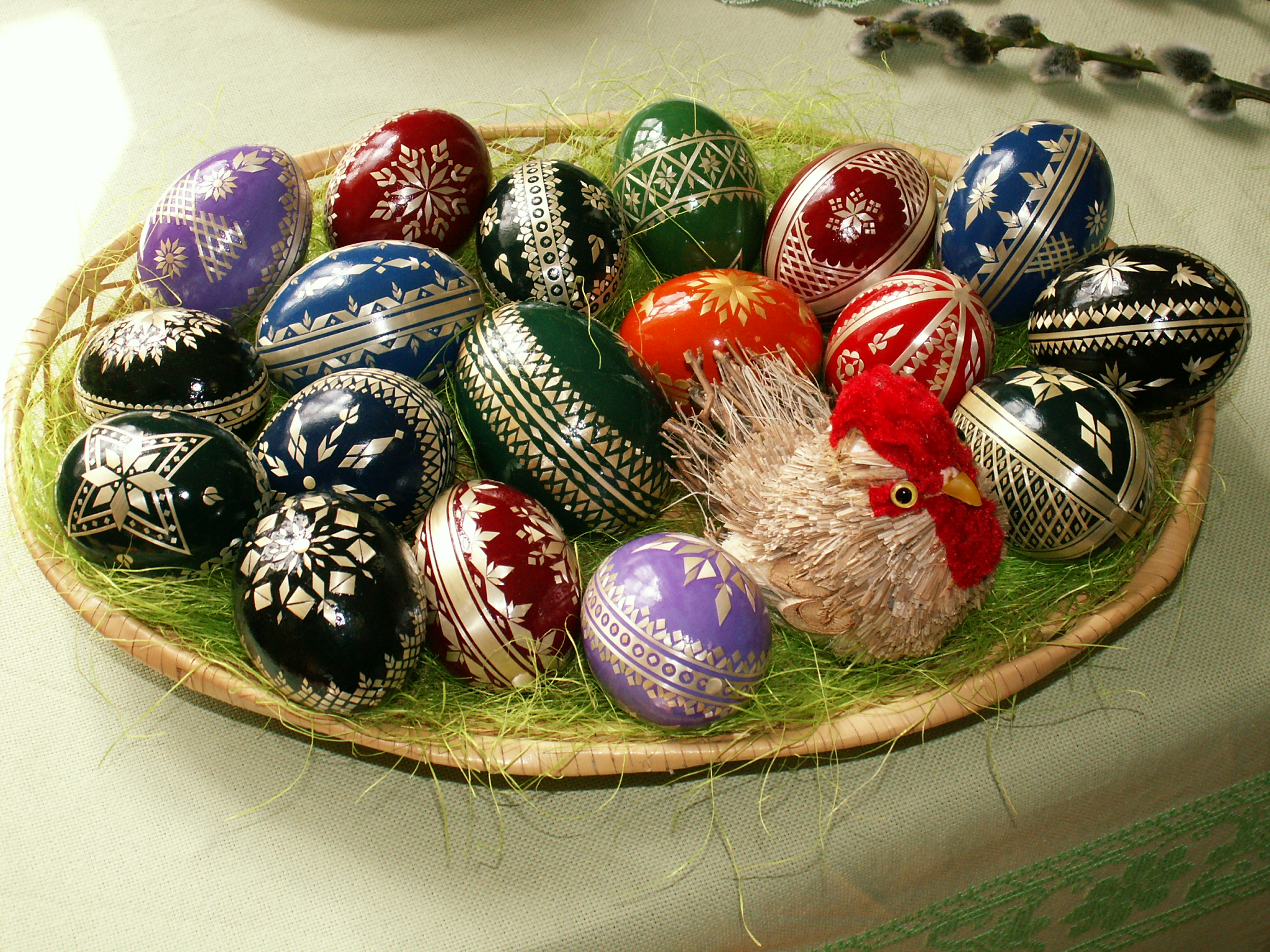- The holiest day of the entire year which is a commemoration of the resurrection of Jesus Christ and is considered as a rebirth of Christianity.
- Latin Catholics greet each other with the words of Luke 24:34, "Surrexit Dominus vere, alleluia!" ("The Lord is risen indeed!"). The person so greeted responds, "Et apparuit Simoni, alleluia!" ("And hath appeared unto Simon!").
- Based on the Bible, Jesus was resurrected on the first day of the week, Sunday (Matthew 28:1; Mark 16:2,9; Luke 24:1; John 20:1,19).
- Easter Sunday is a movable feast day celebrated on the first Sunday following the Paschal Full Moon (PFM) date for the year or a full moon after the vernal equinox on March 21 and it usually falls between March 22 and April 25 every year. In June 325 A.D. astronomers approximated astronomical full moon dates for the Christian church, calling them Ecclesiastical Full Moon (EFM) dates. From 326 A.D. the PFM date has always been the EFM date after March 20 (which was the equinox date in 325 A.D.). Orthodox Christians use the Julian calendar to calculate when Easter will occur and typically celebrate the holiday a week or two after the Western churches, which follow the Gregorian calendar.
- The earliest references of the festival celebration dates back to the 2nd century wherein many controversies arose regarding the celebration of this festival. The first controversy was when Bishop Victor tried to punish bishops of Asia largely pertaining to the dates of the festival and the rights of celebrating the festival. The second controversy arose in the 4th century, when a large majority was unhappy and considered it an offense to consult the Jews for following the Hebrew calendar for the festival date but this controversy was promptly resolved by the First Council when it was decided that the festival would be celebrated through independent computations leading to the day that it was celebrated on the first Sunday after the first moon after March 21.
- The festival marks the end of Lent, which is a 40-day fasting period in Western Christianity.
- Easter Sunday is typically the most well-attended Sunday service of the year for Christian churches.
- According to some sources, a seventy-century English monastic historian by the name of Bede, wrote that the word "Easter" was derived from the name of an ancient Anglo-Saxon or Teutonic goddess Eostre (pronounced yo'ster), who was associated with spring and fertility and an annual spring festival was held in her honor in pagan times.
- Other sources claimed that Easter traced its origin from the Latin term hebdomada alba, or white week, an ancient reference to Easter week and the white clothing donned by people who were baptized during that time. Through a translation error, the term later appeared as esostarum in Old High German, which eventually became Easter in English.
- In many European languages Easter means Passover. (Spanish, Pascua; French, Paques; Greek and Latin, Pascha; Italian, Pasqua). These words traced back its origins to an Aramaic form of the Hebrew term, "Pesach" which means "Passover" and historically Jesus’ crucifixion and resurrection occurred after he went to Jerusalem to celebrate Passover which is a Jewish festival commemorating the ancient Israelites’ exodus from slavery in Egypt. During the first three centuries of the Church, Pasch referred specifically to the celebration of Christ's passion and death; by the end of the fourth century, it also included the Easter Vigil; and by the end of the fifth century, it referred to Easter itself. Pascha eventually came to mean Easter.
- Many Christian churches choose to refer to Easter Sunday as Resurrection Day because of Easter's pagan origins and also because of the commercialization of Easter.
- A very popular symbol given during this day is an Easter egg symbolizing resurrection or the time Jesus emerged from the tomb to everlasting life.
 |
| Easter Eggs by Jan Kameníček |
Project Britain
Time and Date
International Business Times
GM Arts
EWTN
Topmarks
Got Questions
Heavy
Fish Eaters
About.Com Catholicism
About.Com Christianity
Catholic Online
Calendar Labs
History
Calendar-Updates
Easter

No comments:
Post a Comment